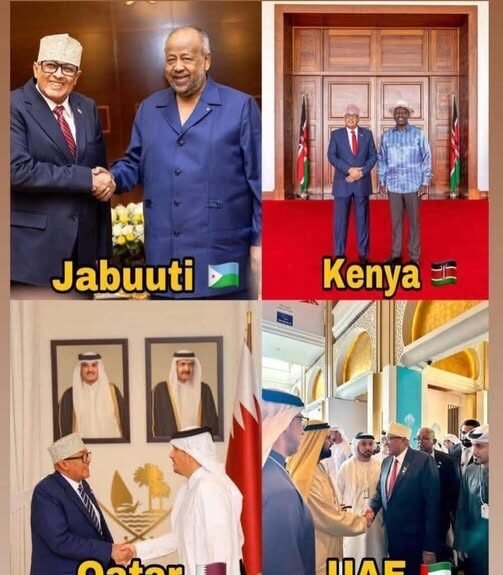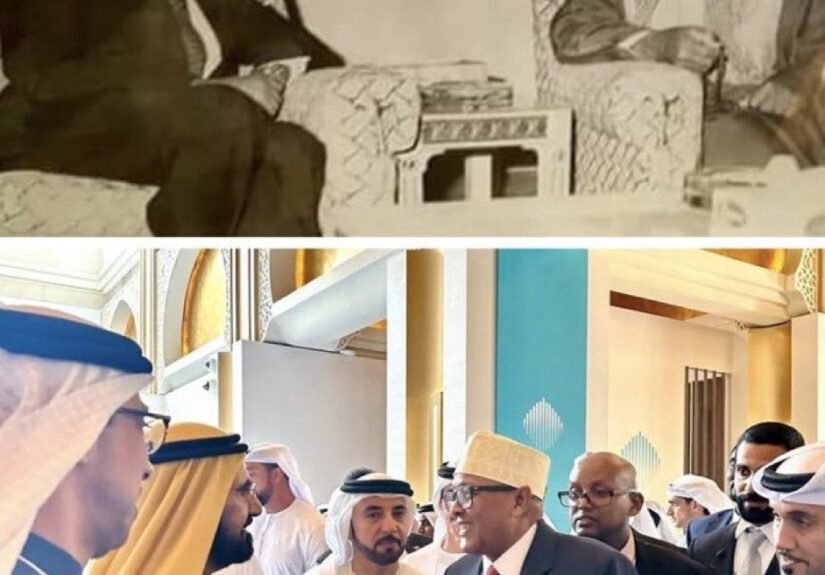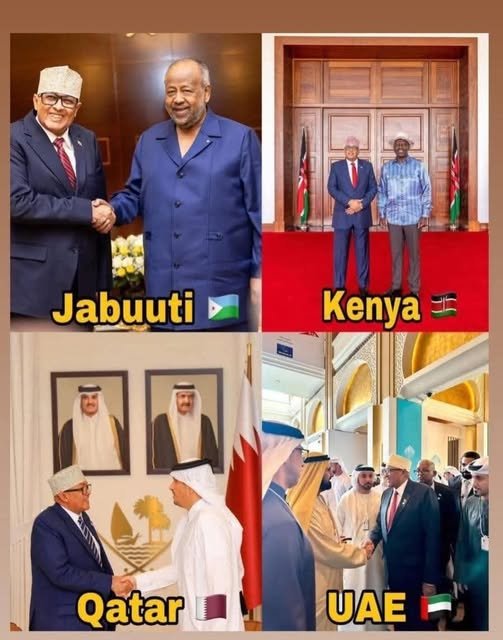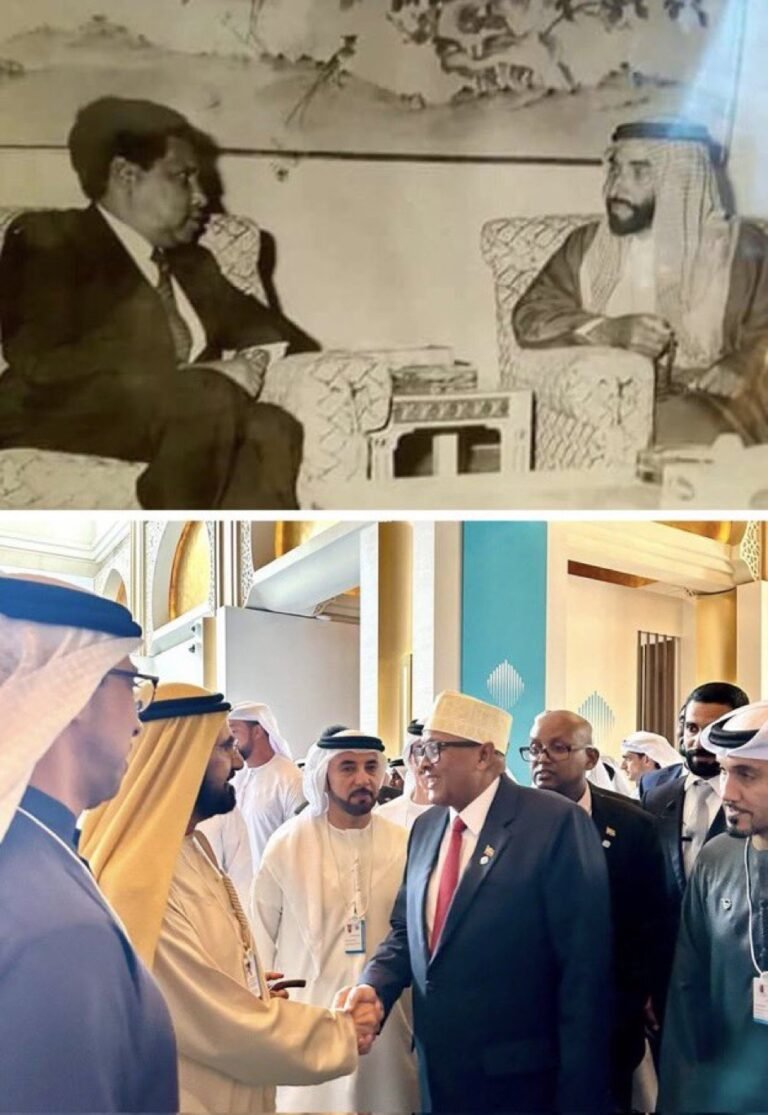
By Prof. Nassir Hussein Kahin, Political Analyst, International Affairs Writer and Managing Editor, Bridgingsomaliland
In the aftermath of President Abdirahman Mohamed Abdilahi “Cirro’s” official visit to Qatar — a country no Somaliland president before him had dared visit — public discourse in Somaliland has once again erupted with speculation, criticism, and polarized interpretation. The source of contention? A formal press statement released by the Qatari government reiterating its commitment to the “One Somalia” policy and urging the resumption of talks between Somaliland and Somalia.
For some in the opposition, this was seen as a political misstep — an “embarrassment,” as they claim, that could have been avoided had the president sent lower-ranking officials to gauge Qatar’s stance first. Others see it as a failed mission for international recognition — a cause the president has championed with an unrelenting commitment since taking office. But such interpretations risk oversimplifying the complexity and objectives of modern diplomacy.
The Purpose of Presidential Diplomacy is Broader than Recognition
Not every foreign trip a head of state undertakes must revolve solely around the quest for recognition. President Cirro’s recent diplomatic efforts — from the UAE and Kenya to Djibouti and Qatar — reflect a more holistic regional policy, one that moves beyond single-issue diplomacy. The president’s visit to Doha, one of the wealthiest and most diplomatically active capitals in the Gulf, should be seen in that broader lens.
Qatar is not just an ally of Somalia; it is a regional financial power, a diplomatic heavyweight, and a key player in the Horn of Africa. While its official policy still aligns with Somali unity, Somaliland engaging directly at the presidential level sends a clear message: Somaliland is not afraid to speak for itself, even to those who disagree with it.
President Cirro has, through this visit, signaled that Somaliland is open to cooperation in economic development, investment, education, and regional security — areas where even states that oppose its sovereignty might find common ground.
Criticism Is Expected, But National Interest Must Prevail
It is entirely legitimate for opposition voices in Somaliland — as in any democratic society — to question foreign policy decisions. However, there must also be a recognition that not all details of diplomacy are public-facing, especially when national security and long-term strategy are involved. Even in the most transparent democracies, foreign affairs are often shielded from real-time scrutiny to allow room for negotiation, compromise, and statecraft.
Somalilanders on social media must avoid the temptation of micromanaging diplomacy — dissecting every handshake, photo op, or statement in search of either failure or success. Foreign policy is built gradually, not through spectacle, but through persistence, patience, and presence.
The Danger of Over-Simplifying Every Foreign Trip
One of the troubling trends emerging online is the assumption that every foreign trip President Cirro makes must result in formal recognition — or else it’s a failure. This is not only an unfair standard; it’s an unrealistic one. Recognition, particularly for a state like Somaliland navigating a complex international order, is a strategic marathon, not a sprint.
President Cirro’s outreach to Qatar — a nation with which Somaliland has never had open presidential-level dialogue — represents a shift in tone and vision. He is pursuing a policy that seeks to engage both allies and adversaries, in the hopes of changing minds over time, building economic partnerships, and ensuring Somaliland is never left out of regional developments.
His approach contrasts with those of previous administrations, which either avoided certain states or limited their engagements to like-minded partners. Cirro is boldly expanding the playing field.
What Was Achieved in Qatar?
According to government sources and emerging media reports, President Cirro’s trip to Doha included agreements and discussions on:
• Investment opportunities in infrastructure
• Regional cooperation on education and vocational training
• Cultural and media exchanges
• Collaboration in sectors like water development, agriculture, and renewable energy
These are not small achievements. In fact, economic development and social investment are core components of state-building — with or without recognition.
What Somaliland Gains from Talking to Everyone
• Respect: States that once ignored Somaliland now must receive its president and hear its case directly.
• Influence: Even if Qatar doesn’t recognize Somaliland today, the seeds of future policy shifts may be planted through dialogue.
• Balance: Engaging diverse partners allows Somaliland to avoid dependence on one or two regional powers.
Conclusion: Diplomacy Is Measured in Maturity, Not Headlines
President Cirro’s Qatar visit may not have yielded a headline announcement of recognition — but it did something just as important: it asserted Somaliland’s diplomatic agency on its own terms.
Rather than retreat into echo chambers of old alliances, Somaliland is stepping into a more nuanced, inclusive, and long-term foreign policy doctrine for Somaliland’s future. That’s not weakness — it’s evolution. And in diplomacy, as in all statecraft, relationships built today may bear fruit tomorrow.
Let’s give diplomacy the room it needs — and the credit it deserves.




